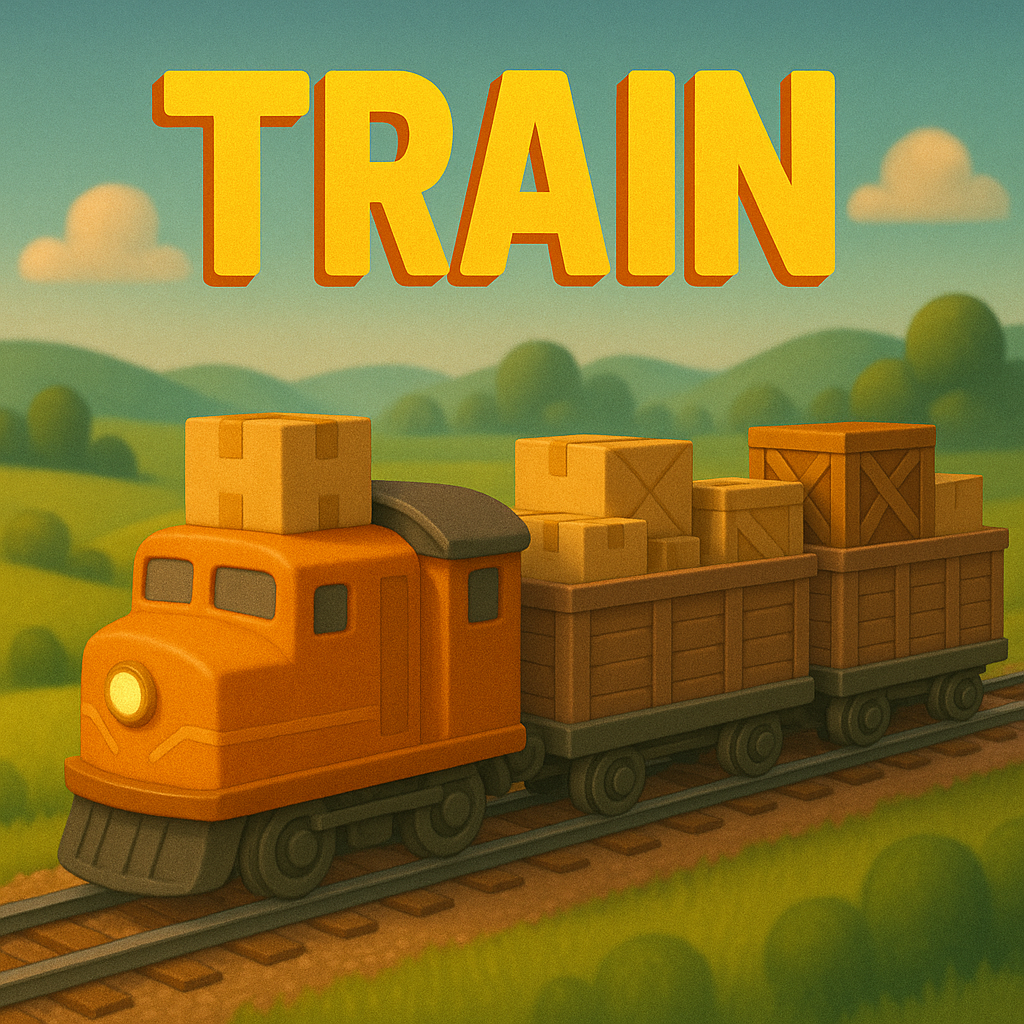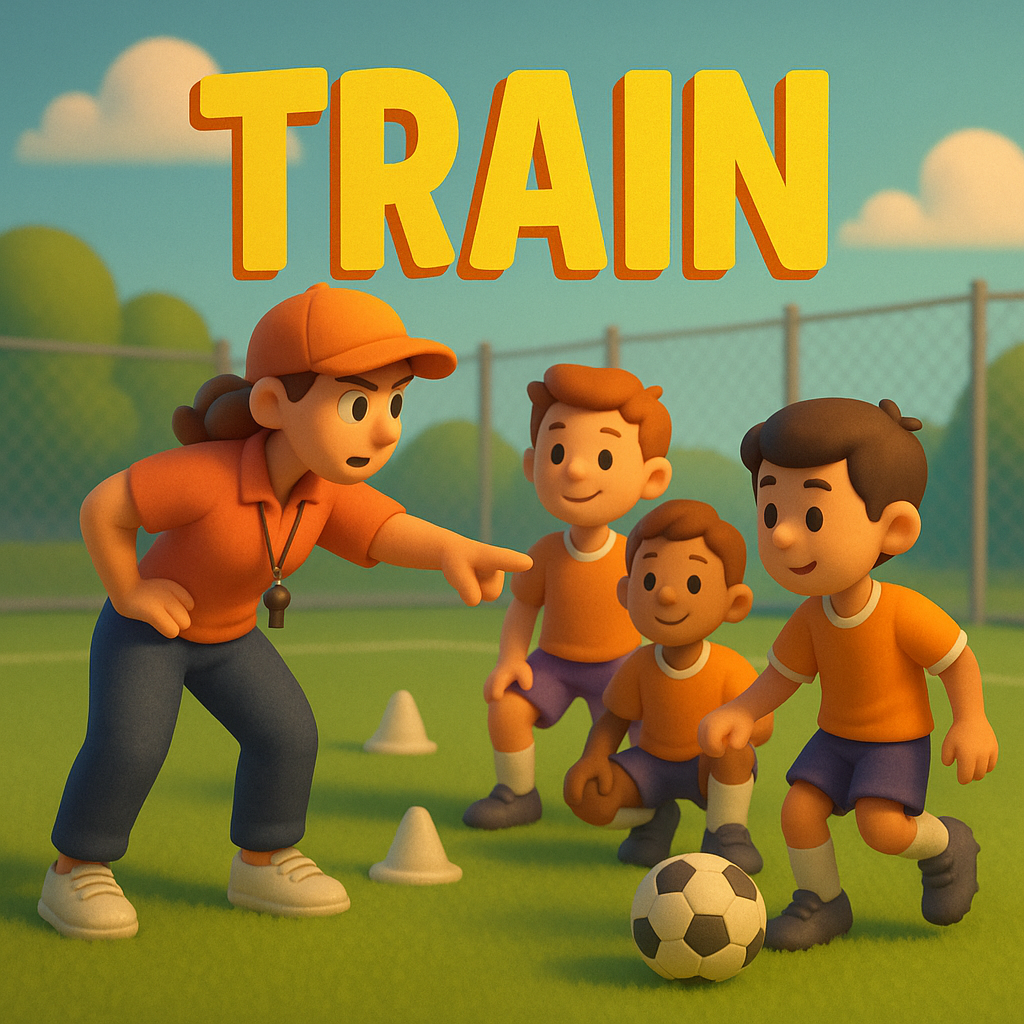Train
Definition
Train refers to a series of connected vehicles running on a track, used for transporting goods or passengers. As a verb, it means to teach, develop, or prepare skills or abilities through practice or instruction.
Parts of Speech
- Noun
- Verb
Pronunciation
American English
- IPA Pronunciation: /treɪn/
- Respelling: TRAYN
British English
- IPA Pronunciation: /treɪn/
- Respelling: TRAYN
Etymology
The word "train" originates from Old French "trahiner," meaning "to pull or draw," derived from Latin "trahere," meaning "to draw or drag." The noun form developed later to refer to a series of connected items or vehicles.
Derivatives
- Trainer (noun)
- Training (noun)
- Retrain (verb)
- Trainable (adjective)
- Untrained (adjective)
Synonyms
- Locomotive
- Coach
- Teach (verb)
Antonyms
- Disorganize (verb)
- Neglect (verb)
- None (noun)
Usage
The word "train" is versatile in usage. As a noun, it refers to the vehicle system, e.g., "The train arrived at the station on time." As a verb, it involves preparation, e.g., "He trained his dog to follow commands." It is also used metaphorically, e.g., "She trained her focus on the task at hand."
Related Terms
- Locomotive: A powered rail vehicle pulling trains.
- Carriage: A passenger vehicle in a train.
- Practice: Repeated exercise for skill development.
Detailed Definitions
Noun
- A connected series of vehicles running on a track: Refers to a railway transport system.
- Example: "The cargo train carried goods across the country."
- A sequence or line of connected people or items: Used metaphorically or literally.
- Example: "The wedding dress had a long train trailing behind."
Verb
- To teach or develop skills through practice or instruction: Refers to preparing someone for a specific task or role.
- Example: "She trained her team for the upcoming tournament."
- To condition or discipline oneself or others: Refers to preparation for physical or mental tasks.
- Example: "He trained for the marathon every morning."
train



🇨🇳 Mandarin
- 火车 (huǒ chē): train (vehicle)
- IPA Pronunciation: /xwǒ ʈʂʰɤ̌/
- Respelling in English: huo che
- 训练 (xùn liàn): train (to practice, teach)
- IPA Pronunciation: /ɕŷn ljɛ̂n/
- Respelling in English: xun lian
🇮🇳 Hindi
- रेलगाड़ी (relagāṛī): train (vehicle)
- IPA Pronunciation: /ɾeːlɡaːɽiː/
- Respelling in English: relgari
- प्रशिक्षण (praśikṣaṇ): train (to practice, teach)
- IPA Pronunciation: /pɾəʂɪkʂəɳ/
- Respelling in English: prashikshan
🇪🇸 Spanish
- Tren (tren): train (vehicle)
- IPA Pronunciation: /tɾen/
- Respelling in English: tren
- Entrenar (entrenar): train (to practice, teach)
- IPA Pronunciation: /entreˈnar/
- Respelling in English: entrenar
🇫🇷 French
- Train (train): train (vehicle)
- IPA Pronunciation: /tʁɛ̃/
- Respelling in English: tren
- Entraîner (entraîner): train (to practice, teach)
- IPA Pronunciation: /ɑ̃tʁene/
- Respelling in English: entrainer
🇦🇪 Modern Standard Arabic
- قطار (qitār): train (vehicle)
- IPA Pronunciation: /qi.taːr/
- Respelling in English: qitar
- تدريب (tadrīb): train (to practice, teach)
- IPA Pronunciation: /ta.driːb/
- Respelling in English: tadrīb
🇧🇩 Bengali
- ট্রেন (ṭrēn): train (vehicle)
- IPA Pronunciation: /ʈren/
- Respelling in English: tren
- প্রশিক্ষণ (praśikṣaṇ): train (to practice, teach)
- IPA Pronunciation: /proʃiʃoɳ/
- Respelling in English: proshishon
🇷🇺 Russian
- Поезд (poezd): train (vehicle)
- IPA Pronunciation: /pɐˈjest/
- Respelling in English: po-yest
- Тренировать (trenirovat): train (to practice, teach)
- IPA Pronunciation: /trʲɪnʲɪˈroʋət/
- Respelling in English: tre-ni-ro-vat
🇵🇹 Portuguese
- Trem (trem): train (vehicle)
- IPA Pronunciation: /tɾẽj̃/
- Respelling in English: tren
- Treinar (treinar): train (to practice, teach)
- IPA Pronunciation: /tɾeiˈnaɾ/
- Respelling in English: trei-nar
🇮🇩 Indonesian
- Kereta api (kereta api): train (vehicle)
- IPA Pronunciation: /kəˈrɛt̪a ˈapi/
- Respelling in English: ke-re-ta a-pi
- Melatih (melatih): train (to practice, teach)
- IPA Pronunciation: /məˈlat̪iʔ/
- Respelling in English: me-la-tih
🇩🇪 German
- Zug (Zug): train (vehicle)
- IPA Pronunciation: /tsuːk/
- Respelling in English: tsook
- Trainieren (Trainieren): train (to practice, teach)
- IPA Pronunciation: /tʁaɪ̯ˈniːʁən/
- Respelling in English: trai-nieren
🇯🇵 Japanese
- 電車 (densha): train (vehicle)
- IPA Pronunciation: /deɴ.ɕa̠/
- Respelling in English: den-sha
- 訓練 (kunren): train (to practice, teach)
- IPA Pronunciation: /kɯ̟ᵝɴɾe̞ɴ/
- Respelling in English: kun-ren
🇻🇳 Vietnamese
- Tàu (tàu): train (vehicle)
- IPA Pronunciation: /təːw˨˩/
- Respelling in English: tau
- Huấn luyện (huấn luyện): train (to practice, teach)
- IPA Pronunciation: /hwaən˧ˀ˦ ljə̯n˧˧/
- Respelling in English: huan luyen
🇰🇷 Korean
- 기차 (gicha): train (vehicle)
- IPA Pronunciation: /ɡi.tɕha/
- Respelling in English: gi-cha
- 훈련 (hunlyeon): train (to practice, teach)
- IPA Pronunciation: /hʌn.ljʌn/
- Respelling in English: hun-lyeon
🇹🇷 Turkish
- Tren (tren): train (vehicle)
- IPA Pronunciation: /tɾen/
- Respelling in English: tren
- Eğitmek (eğitmek): train (to practice, teach)
- IPA Pronunciation: /eɟit̪mek/
- Respelling in English: egi-tmek
🇵🇰 Urdu
- ٹرین (ṭrain): train (vehicle)
- IPA Pronunciation: /ʈɾeɪn/
- Respelling in English: train
- تربیت کرنا (tarbīt karnā): train (to practice, teach)
- IPA Pronunciation: /t̪ərbijt̪ kəɾnaː/
- Respelling in English: tarbit karna





